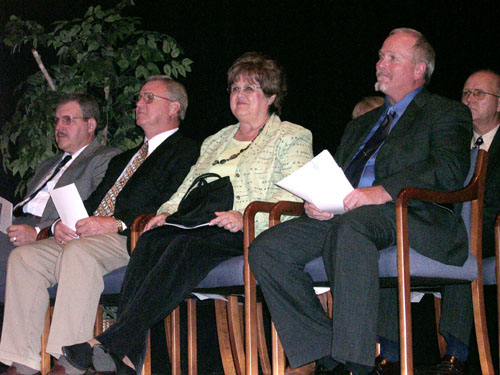Victory in Delaware School District Religion Case
Supreme Court declines to hear case about school board prayers
By Jane Hunter, JewsOnFirst.org, January 24, 2012
The Supreme Court's refusal last week to hear a case about religion in public schools that JewsOnFirst has followed for years was a resounding victory for the Jewish "Doe" family in Delaware who brought the case, and for countless families across the country. By declining to review the case, Indian River School District vs. Doe (11-569), the high court put an end to more than six years of litigation — and to that school board opening its meetings with prayers.


JewsOnFirst brought national attention to the case with a report in 2006. The Doe and Dobrich families had filed suit the year before. They went to court after repeatedly failing to persuade the school district, in Delaware's Sussex County, to end its sponsorship of fundamentalist Christianity in the classroom and at school events.
The families' complaints were resolved in 2008 with undisclosed settlements and changes in the district's policies regarding religion, as we reported here.
The case that the court rejected last week concerned the district's practice of opening its meetings with sectarian -- usually Christian -- prayers. The issue of the school board's prayer was left over from the original case and continued by the Doe family following the 2008 settlement. The Dobrich family moved away from the Indian River district during the case. The Doe family remains in the district and maintains anonymity for fear of retaliation.
The Supreme Court's action follows a ruling against the prayer policy last August by the 3rd U.S. Circuit Court of Appeals, which reversed a trial judge's finding that the school board was a legislative body and thus permitted to open meetings with official prayers. The appeals court ruled that the board was not a legislature because children attended its meetings.
"We are heartened that this is the final step in a long struggle to protect the freedoms of public school children in Delaware," said the Doe family in a statement released through their attorney, Thomas J. Allingham II, in Wilmington. "The decision also affects children in [cases in] Pennsylvania and New Jersey," the statement continued, "which makes us feel that this terribly stressful and emotional battle was worth the fight."
In 2008, plaintiff Jane Doe told JewsOnFirst about the difficult time her family had during the litigation. They could not betray their anonymity, so they were unable to respond to insults and false statements board members made about them and the case. The family's stressful situation was significantly prolonged when the board, encouraged by Christian right legal activists, bolted from a laboriously negotiated settlement deal.
The Doe family's statement continued:
Religious freedom has been upheld here. Children will no longer be pressured by their public school boards to take part in the religious beliefs of adults whose only job should be to serve all of the children who attend our public schools, not just those whose who share the religious beliefs of school board members.
There will be those who say we are taking away freedoms but that is just plain wrong. It was teachers, administrators, and school board members who pushed their personal religious views on our school children and it is because of that political and religious pressure that we had to stand up for what is right. This is the end for us in a very painful process and for that, we are grateful.
Last week Charles Bireley, the board president told a television station in nearby Salisbury, Maryland that the court's refusal to hear the case was "disappointing" and "disturbing." He said the board's attorneys would examine the August appeals court decision.
The Indian River board is currently replacing the opening prayer with a moment of silence. But JewsOnFirst has learned from a source in Sussex County that hardliners in the district are using the public comment period of board meetings to recite sectarian Christian prayers.
The Supreme Court also declined to entertain an appeal of a 4th Circuit Court of Appeals ruling that prayers opening the meetings of the Forsyth County Board of Commissioners in North Carolina violated the First Amendment's establishment clause prohibiting government sponsorship of a particular religion. As were the Indian River District's prayers, the Forsyth County commissioners' prayers were predominantly Christian.